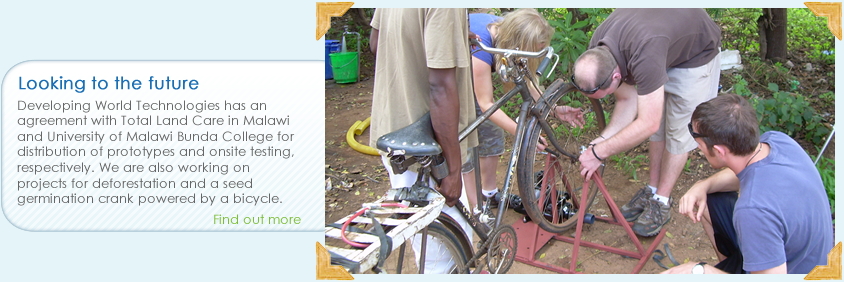List of Seed Funding Sources For Student Ventures
by Humera Fasihuddin
Finding seed funding for your venture while you’re going to school can be a tricky thing. There are sources of funding out there, you just need to do a bit of ‘hustling’ to get it.
Here’s a list of EARLY STAGE funding resources, including grants, business plan competitions, sources of loans and equity investors. By no means is it comprehensive, nor does it include an exhaustive list of seed funds available at campuses like your own (talk to your Dean and/or Tech Transfer Office to find out what’s available). If you know of another resources, even if its specific to your state or campus, let us know… submit your suggested additions in the comments section below. Also, if you’re a student whose had some personal experience raising funding from any of these sources, post your experience here so we can learn how you made out.
~ Humera Fasihuddin, Manager of Student Programming, T: @ihumera
Seed Funding For Student Ventures
CUSTOMER REVENUE:
1) NO BETTER SOURCE of funding than customer revenue. Advance orders are helpful. Letters of commitment are also very helpful towards securing the interest of the funding sources below. Take Steve Blank’s free course on Udacity.com for an effective means to find/validate a business model for your venture opportunity.
BUSINESS PLAN COMPETITIONS:
These often require a bit of travel, but the networking and connections that come from pitching and presenting are invaluable. Take Ecovative Design, the organic styrofoam replacement company out of RPI, as an example. They raised over a million dollars in business plan competition dollars that helped fund their first employees and the build out of a small manufacturing floor. This early money was essential to getting off the ground, refining their business model and making global connections that dramatically improved their valuation before they finally received strategic investment from 3M and packaging giant Sealed Air. But, proceed with caution and make sure you’re onto something amazing because doing the business plan circuit can be a big time drain. Here’s a bunch that we trust…
3) Rice Business Plan Competition
5) Berkeley and Columbia University Global Social Venture Challenge
6) Tufts Business Plan Competition
8) Green PICNIC Challenge (Europe)
9) ASME i-Show
10) Queen’s Entrepreneurs’ Competition (Canada)
11) Harvard Social Enterprise Conference Pitch Contest
12) Campus only competitions:
- The Innovation Challenge at Arizona State University
- Technology Innovation Challenge at UMass Amherst
Here’s another site for business plan competitions: http://www.bizplancompetitions.com
GRANTS:
If you’ve got a solid innovation and meet the threshold set forth by this bunch (each has their own funding criteria), grant funding is a ‘no strings’ or ‘not very many strings’ attached source of funding. These grantors will want assurances along the way that you follow through on what you said in the proposal, but generally this source of funding will leave your equity in tact.
1) NCIIA (combination grant and venture accelerator with possibility of follow-on investment from for-profit subsidiary, VentureWell)
2) Federal Government’s SBIR/STTR Phase I program (grants.gov)
3) Individual States…
- NY: Environmental Investment Programs and Innovate NY Fund
- Georgia: Here’s a list of Georgia Tech and Greater Atlanta Funding Sources, courtesy of Shawna Hagen.
- Who else? Add your state to this list by writing to us in the comments field below.
5) Theil Foundation (20 Under 20 Fellowship)
6) Individual Campuses…
- UCLA: The Moxie Center offers small change for prototyping of undergraduate innovations
- Arizona State: Edson Student Entrepreneur Initiative and Venture Catalyst
- Georgia Tech: Here’s a list of Georgia Tech and Greater Atlanta Funding Sources, courtesy of Shawna Hagen.
- Who else? Add your campus to this list by writing to us in the comments field below.
CROWDSOURCING STARTUP CAPITAL:
A newcomer to the scene of early-stage funding, crowdsourcing is a highly effective way to raise seed funding on the merit of your idea from people that care about you (often referred to in the world of early-stage finance as ‘Friends, Family and Fools’) and those who could benefit from your product/service being available in the marketplace. Many strong concept-level ventures have gotten raised well over their target using this means.
1) Kickstarter
2) IndieGogo
Equity SEED FUNDing FOR STUDENTS:
This new funding model emerged in the last year. Venture Capital firm, First Round Capital, is partnering with student organizations to enable students to vet their peer’s ideas and the team’s credentials. We’re not very familiar with the exact mechanisms of application and financing, but if you are… shoot us a message and we’ll update this post.
LOAN SOURCES:
1) Kiva (developing world)
2) Accion (microfinance for developing world, http://www.accion.org/)
3) Accion U.S. (microfinance for U.S., http://www.accion.org/usnetwork)
4) US Small Business Loan Program (SBA)
BUSINESS ACCELERATOR/ INVESTORS / Fellowships:
1) Y-Combinator (web 2.0)
2) TechStars (web 2.0)
3) Bolt (hardware)
4) Unreasonable Institute (social)
5) Ashoka Fellows Program (developing world)
6) Empower Program for Social Entrepreneurship at Tufts (developing world)
7) Legatum Center for Development and Entrepreneurship at MIT (developing world)
8) Echoing Green (developing world)



 Ecowell: Started as a senior class project at WSU. The group of students was formed through the Harold Frank Engineering Entrepreneurship Institute, designed to bring engineering and business students together to develop a technology and business plan.
Ecowell: Started as a senior class project at WSU. The group of students was formed through the Harold Frank Engineering Entrepreneurship Institute, designed to bring engineering and business students together to develop a technology and business plan. 